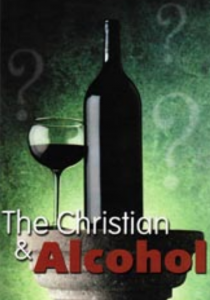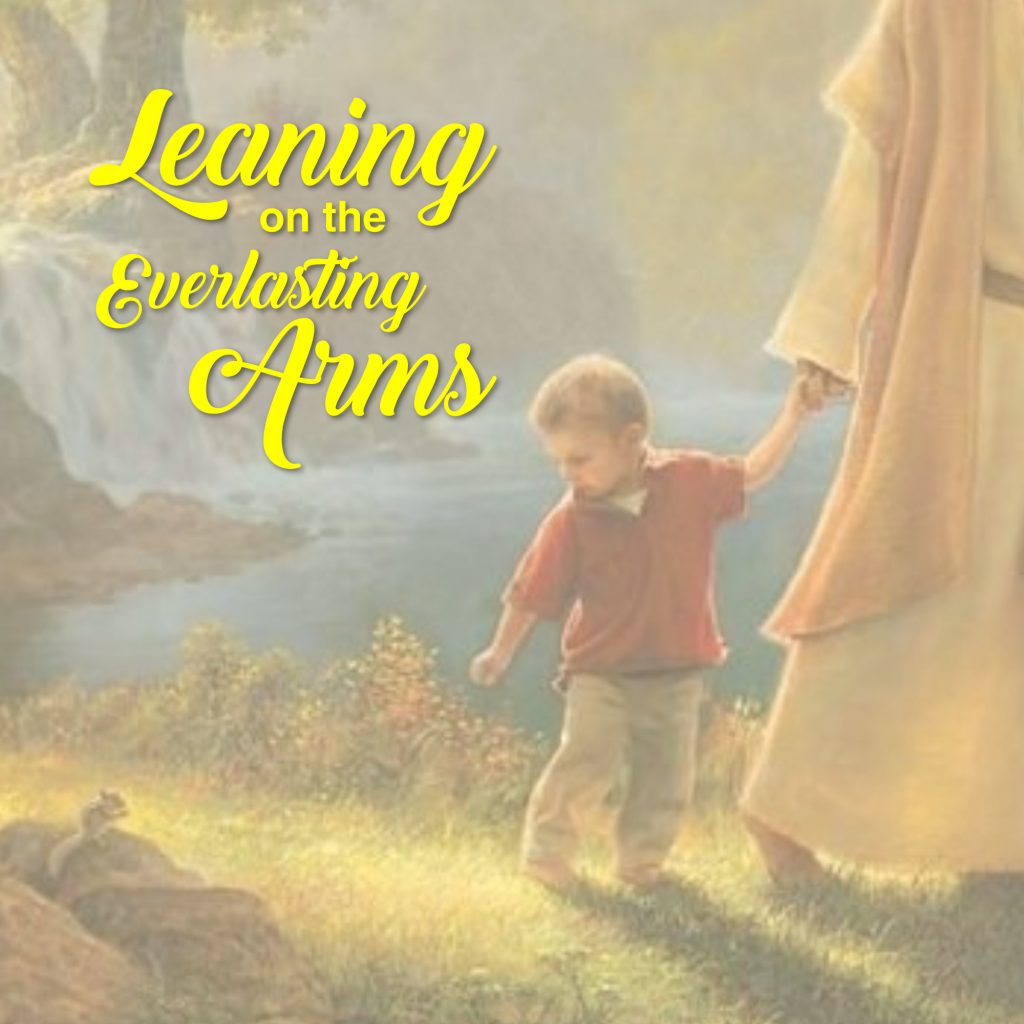
The Christian and Alcohol
Tests show that after drinking three bottles of beer, there is an average of 13 percent net memory loss. After taking only small quantities of alcohol, trained typists were tested and their errors increased 40 percent. Only one ounce of alcohol increases the time required to make a decision by nearly 10 percent; hinders muscular reaction by 17 percent; increases errors due to lack of attention by 35 percent. —Paul Harvey
Is it biblically permissible for a Christian to drink alcohol? If so, how much?
This controversial subject has evoked many passionate opinions among Christians. Why? Is God’s Word silent or in anyway unclear about alcohol?
I submit that the Bible is in no way ambiguous when it speaks on alcohol and how it relates to God’s followers. I hope the following study will assist you in forming your own biblically based conclusions on this important subject.
Two Opposing Camps
Among Christians, there are two primary camps of thought on this sensitive topic. The first group argues that Jesus Himself drank wine, and since a Christian is a follower of Christ, how can it be forbidden? And generally, they add with a moderate air: “but even so, drinking should not be done to excess.”
Then there is the other position: Alcohol is an addictive and destructive drug that no sincere Christian should use to any degree.
Of course, between these two diametrically opposed poles, there are countless variations of opinions. In this short work, I cannot possibly address the whole spectrum of perspectives—so using the Scripture and common sense, I will attempt to stay within the core principles.
In fairness, I will state from the beginning that I am firmly in the unfermented camp! I believe that scriptural references to Jesus’ use of wine are of the grape juice variety.
But before the wine connoisseurs toss this book aside, you owe it to yourself to hear me out. I come from the perspective of one who grew up frequently drinking wine or beer with dinner—I even brewed my own beer and made wine once. But I have never been an alcoholic, so my position is not the result of overreacting from a clean and sober victory.
What Is Alcohol?
Let’s begin with a definition. There are many forms of this compound called alcohol. However, there is no mistaking that all of them are classified as poisons—toxins to the human body. The alcohol found in beverages such as beer, wine, and brandy is ethanol (C2H5OH), a clear, highly flammable liquid that has a burning taste and a characteristic odor.
What happens when one consumes this type of alcohol? Well, death usually occurs if the concentration of ethanol in the bloodstream exceeds about five percent! But even for those who use it sparingly, immediate behavioral changes, impairment of vision and unconsciousness can occur at lower concentrations. That’s interesting, isn’t it? That’s exactly the same effect that other illicit drugs such as heroin, and even marijuana, have on those who use those substances. I doubt there are any Christian churches that would ordain the use of these drugs in even a casual social setting—or even to “calm the nerves” before bedtime. Is there any reason that alcohol should not be included in this list of drugs to avoid?
Two Types of Wine—Biblically Speaking
The word “wine” in the Bible sometimes refers to the new—or fresh juice of the grape; other times it is used to describe the aged or fermented product containing the drug alcohol. The translators never used the term “grape juice.” In the Hebrew text, the writers use different words to distinguish between the two. The word tîyrôsh is used for new unfermented wine, and yayin is generally used for fermented wine, but there were some exceptions (Isaiah 16:10). However, in the New Testament, only one Greek word is used to describe both fermented and fresh grape juice: oinis . But this shouldn’t be a problem. By simply understanding the context of the word in a passage, the appropriate meaning will usually surface. So unless the passage says old or new wine (as in Luke 5:37–39), the context will often tell us what kind of grape juice is being described.
One simple example occurs in Mark 2:22: “And no one puts new wine into old wineskins; or else the new wine bursts the wineskins, the wine is spilled, and the wineskins are ruined. But new wine must be put into new wineskins” (NKJV). Obviously the new wine would be the fresh unfermented kind.
Additionally, from the Old Testament, in Isaiah 65:8, we read, “As the new wine is found in the cluster, And one says, ‘Do not destroy it, For a blessing is in it…’” It is clear in both these passages that the new wine is simply grape juice.
Confusing Verses Clarified
The whole of Scripture is clearly and adamantly against the consumption of alcohol, but human nature will look upon any textual ambiguity as a “loophole” to justify drinking alcohol.
An example of this reasoning is the wedding in Cana, where Jesus turned water into wine. “When the master of the feast had tasted the water that was made wine, and did not know where it came from (but the servants who had drawn the water knew), the master of the feast called the bridegroom. And he said to him, ‘Every man at the beginning sets out the good wine, and when the guests have well drunk, then the inferior. You have kept the good wine until now!’” (John 2:9, 10). Those who support the intake of alcohol suggest this must have been alcoholic wine—after all, it was a wedding, and every wedding has wine—right? But let’s pause to consider the implications. There were six pots for Jesus to fill, and each of those would hold 20 to 30 gallons. That’s up to 180 gallons of beverage!
Are we to believe that Jesus made 180 gallons of a destructive drug—enough to get every guest drunk and launch this new marriage with slurring lips and staggering feet? Indeed, He would have been acting against His own Word! (Habakkuk 2:15; Luke 12:46; Ephesians 5:18). If we approach this passage relying on the whole of Scripture, we must surely come to the conclusion that Jesus made unfermented wine—and the governor of the feast complimented the groom on its pure quality. (John 2:4, 6, 10. See also Mark 1:24, 2 Samuel 16:10).
Whatever the Soul Longs For
There are additional passages of Scripture that at first glance might lead a person to think drinking a little fermented wine in moderation might be biblically condoned. In the next few sections, we will address some of the verses that are sometimes construed to condone fermented wine, when in fact they do nothing of the sort.
“And thou shalt bestow that money for whatsoever thy soul lusteth after, for oxen, or for sheep, or for wine, or for strong drink, or for whatsoever thy soul desireth: and thou shalt eat there before the LORD thy God, and thou shalt rejoice, thou, and thine household” (Deuteronomy 14:26). The phrase “strong drink” is translated from the word shekar. A Shekar is condemned by Solomon as a “brawler” (Proverbs 20:1). And Isaiah pronounces a woe upon those who “run after strong drink(shekar)” (Isaiah 5:11). Strong drink was also prohibited from the priests (Leviticus 10:9–11) and Nazarites (Numbers 6:2–4; Judges 13:3–5). So how could God so clearly condemn the use of “strong drink” in one place in the Bible, and yet approve of it in another place? Like the word yayin (“wine”), shekar is a generic term that could refer to either an alcoholic beverage, as noted above, or to a sweet, unfermented drink as is indicated in Isaiah 24:9. Shekar is also defined by the The Popular and Critical Bible Encyclopedia as: “Sweet Wine or Syrup. Shechar, luscious, saccharin drink or sweet syrup, especially sugar or honey of dates or of the palm-tree” or “Date or Palm Wine in its fresh and unfermented state.” In fact, “sugar” and “cider” are derivatives from shekar. Therefore, since shekar could mean either a sweet unfermented drink or an intoxicating drink, we must interpret the word according to the context of the verse. Would God encourage the use of tithe money to purchase a beverage that causes intoxication, health problems and diminishing of moral capacities? The only reasonable conclusion is that this verse is referring to the sweet palm-wine beverage in its fresh and unfermented state.
Even if one refuses to accept this translation of the word, keep in mind, the verse in Deuteronomy 14:26 never tells them it is okay to drink this beverage. Rather, it is addressing how they were to transport offerings to present to the Lord when traveling long distances. Moses was recommending they carry money with them rather than to haul the offerings of beasts, grain, and wine long distances. When they arrived they were to purchase whatever they needed for offerings. The animal sacrifices could be eaten but they were commanded to pour the drink offerings on the ground. “And the drink offering thereof shall be the fourth part of an hin for the one lamb: in the holy place shalt thou cause the strong wine to be poured unto the LORD for a drink offering” (Numbers 28:7).
What About the Last Supper?
Some argue that if Jesus partook of wine at the Last Supper, and even employed it as a symbol of His purifying blood, then how can drinking a little wine—even just casually—be wrong? Indeed, the very seeds of the New Testament were watered with wine from the Last Supper. There is no arguing that Jesus used wine at the Last Supper, but it is a mistake to assume that the wine was of the fermented variety.
“For this is My blood of the new covenant, which is shed for many for the remission of sins. But I say to you, I will not drink of this fruit of the vine from now on until that day when I drink it new with you in My Father’s kingdom” (Matthew 26:28–29, emphasis mine). Indeed, here Jesus uses the new wine as a symbol of His new covenant with His people. Jesus also calls wine the “fruit of the vine.” However, after wine goes through the process of fermentation, it is no more the fruit of the vine than yogurt is the fruit of a cow.
Furthermore, we also know that the Passover meal was to be free from all forms of leaven (Exodus 12:19). Fermentation is the identical process of leavening! If the bread was to be free from leaven, which is a type of sin, then we can be sure that the wine, a symbol of Jesus blood, used at the Last Supper would also be free from the poison of alcohol. The perfect, sinless blood of Jesus would never be symbolized by corrupt and putrefying old wine.
Jesus compared His pure teachings to wholesome new wine (Matthew 9:17). Indeed, all corrupted doctrines are likened to the fermented wine of Babylon! Babylon was identified as a place “with whom the kings of the earth committed fornication, and the inhabitants of the earth were made drunk with the wine of her fornication” (Rev 17:2).
Another example: “But Daniel purposed in his heart that he would not defile himself with the portion of the king’s delicacies, nor with the wine (Of Babylon) which he drank” (Daniel 1:8).
Was Jesus a Drunkard?
Pharisees frequently accused Jesus of being a winebibber, drunkard and glutton. They also said He had a devil and blasphemed God, among other things. We know He wasn’t a glutton or demon-possessed blasphemer! So if these things are not true, why should we assume that our Lord was a drinker as indicated by the Pharisees, a group of Jesus’ most-outward adversaries well known for their questionable theology?
They were merely contrasting His lifestyle with the austerity of John the Baptist, a practicing Nazarite, who abstained from anything of the vine and ate locusts and wild honey (Numbers 6:3; Luke 7:33–34, 1:15; John 8:48–52; Mark 2:7; Matthew 3:4).
When Jesus hung parched on the cross, Roman soldiers offered him fermented wine mingled with myrrh. But as soon as Jesus tasted it and recognized it was fermented, He refused it. If Jesus refused this beverage even as His body was tormented with extraordinary thirst, why would He have drank wine normally (Matthew 27:34)? (And more to the point, why then should we?)
Alcohol: The Bible Hall of Shame
The first reference to wine is found in Genesis when Noah, after the flood, created the original fermented grape juice. “Then he drank of the wine and was drunk, and became uncovered in his tent” (Genesis 9:21). The sad record is that Noah drank and stumbled around naked and shamefully exposed himself to his sons. This first experiment with a new drug ended with a scathing curse falling on Noah’s posterity.
Lot also drank, and he was therefore easily seduced into having incestuous relations with his daughters. “So they made their father drink wine that night. And the firstborn went in and lay with her father, and he did not know when she lay down or when she arose” (Genesis 19:33). The offspring of this relationship became the nations of Moab and Ammon, the mortal enemies of God’s people. And there is no shortage of evidence today that alcohol often leads to sexual immorality—such as adultery, rape, and incest.
Then there is the infamous experience when the children of Israel drank alcohol, stripped themselves naked and worshiped a golden calf (Exodus 32:6, 25). This fermented “church social” ended in a horrible massacre.
Amnon, another drinker and the son of David, raped his half-sister Tamar. Because of this incestuous act, he lost his life at the hands of his enraged brother while intoxicated (2 Samuel 13:28).
These are only a few examples. For more about the terrible repercussions involving alcohol in the Bible, look at 2 Samuel 13:28, Job 1:13–19. Truly, when one considers the Biblical record of fermented drink, you have to wonder why would any genuine Christian argue in its defense!
Fermented Wine Brings Woe
The word “woe” is not used commonly today in the English vernacular. The word means deep distress or misery—as from grief and/or wretchedness. The Bible is found using the word in many different places; not surprisingly, the use of alcohol is often the reason why the word is used!
-
- “Woe to those who rise early in the morning, That they may follow intoxicating drink; Who continue until night, till wine inflames them!” (Isaiah 5:11).
-
- “Who has woe? Who has sorrow? Who has contentions? Who hath complaints? Who has wounds without cause? Who has redness of eyes? Those who linger long at the wine, Those who go in search of mixed wine.” (Proverbs 23:29–30).
- “Woe to him who gives drink to his neighbor, Pressing him to your bottle, Even to make him drunk, That you may look on his nakedness!” (Habakkuk 2:15).
Does the Christian need any more condemnation of alcohol consumption than this? A very safe and simple rule for these issues is: “When in doubt, leave it out!”
A Matter of Health
For ye are bought with a price: therefore glorify God in your body, and in your spirit, which are God’s” (1 Corinthians 6:20 KJV). From liver disease to ulcers to dementia, an almost endless list of health problems have been linked to the drinking of alcohol.
Alcohol (also grain alcohol) is a toxin that severely affects the central nervous system when ingested. Most people know that even moderate “social drinking” destroys brain cells.
If a person holds a small swig of whiskey in their mouth for about ten minutes, various parts of the interior of their mouth will become blistered. If you have them blindfolded and have them taste various beverages—for instance, water, vinegar, or milk—you will find that they are incapable of distinguishing one from another. This experiment proves to a certainty that alcohol is not only a violent irritant, but also a narcotic.
I think even the strongest advocate of alcohol must honestly admit that its consumption certainly does not glorify God in their body; instead, it slowly destroys body and mind, which is a clear violation of the Sixth Commandment.
Just as cigarette smoking is suicide on the installment plan, so is alcohol—which is a leading killer in the United States.
Also consider that there is an almost endless selection of other good things to drink that nourishes the body and mind. So why would any Christian want to gamble like this—risking their health, witness, family and eternal life to argue in defense of this destructive substance?
The Most Deadly Substance on Earth
Abraham Lincoln said, “Drink is a cancer in human society, eating out its vitals and threatening its destruction.” So much devastation is caused by alcohol in our community, on the roads and in homes, that this is hardly a bold or surprising statement. Indeed, even if the Bible were silent on the subject, the object lessons of devastation from a thousand years of history would still be crystal clear. But the scriptures say plenty.
“Who hath woe? who hath sorrow? who hath contentions? who hath babbling? who hath wounds without cause? who hath redness of eyes? Those who linger long at the wine, Those who go in search of mixed wine. Do not look on the wine when it is red, When it sparkles in the cup, When it swirls around smoothly; At the last it bites like a serpent, And stings like a viper. Your eyes will see strange things, And your heart will utter perverse things. Yes, you will be like one who lies down in the midst of the sea, Or like one who lies at the top of the mast, saying: ‘They have struck me, but I was not hurt; They have beaten me, but I did not feel it. When shall I awake, that I may seek another drink?’” (Proverb 23:29–35).
And Jeremiah said God would make “bottles of wine” freely available to destroy the nation (Jeremiah 13:12–15). How true is this in our own country—with advertising directed at our youngest and most vulnerable citizens?
Is it a wonder that with a nation consumed by the false merriment of alcohol, it encourages consumption even to our youngest? There is strong evidence supporting widespread alcohol use and the surge of crime committed by young adults—and even children. (Did you know there are 3.3 million problem drinkers in America’s high schools alone?)
Micah also warned of lying and false prophets who condone wine and strong drink (Micah 2:11).
Today, they still teach “moderation” with alcohol, but history has shown that moderation with an addictive drug is impossible.
An Issue of Love
It is good neither to eat meat nor drink wine nor do anything by which your brother stumbles or is offended or is made weak” (Romans 14:21). Because one out of seven people who drink wine will become problem drinkers or alcoholics, how can a Christian support an industry that encourages more people to stumble than any other legal substance?
According to Zig Ziglar, authorities know that approximately one in sixteen people who ever take a social drink will become an alcoholic! Would you even step one foot on an airplane if you knew there was a one in 16 chance that it would crash and end your life? (Actually, the odds for a commercial airliner crashing are closer to one in a million—but even with those odds some people will not fly. Yet many of these same people will take a drink!)
Consider this other well-known fact: In the next 24 hours, alcohol will be responsible for nearly half of all…
- … the homicides.
- …the people who will die on the highway.
- …the people who will be admitted to the hospital.
- …the people who will be incarcerated in jail or prison.
- …the people who will be arrested for domestic violence.
- …the people who will be born with birth defects.
In addition, alcohol deserves a mention for being responsible for a quarter of all suicides.
It’s clear enough from these appalling statistics that any clear thinking citizen, especially a Christian, would feel profound conviction to avoid a drug that accounts for a veritable tidal wave of misery to every culture it touches. If we truly love our brother and God, how can we defend drinking alcohol in any degree? Paul said he would neither eat flesh or drink wine or do anything that caused offense to a brother (Romans 14:21). With so many alcoholics struggling to be saved from their addictions, we must never cause them to stumble again by being even slightly inconsistent in our example.
Inviting Temptation
Therefore submit to God. Resist the devil and he will flee from you” (James 4:7).
It is also a well-documented fact that drinking even the smallest quantity of alcohol impairs reactions and weakens normal inhibitions.
Put simply: It lowers a Christian’s resolve to resist temptation. Why would any Christian want to make it easier for the devil to snare them? Many men and women have awaken after a night baptized by a few glasses of wine or bottles of beer to discover they have violated the Seventh Commandment and forever scarred their lives and reputations.
This is why Peter charges us to be “sober, be vigilant; because your adversary the devil walks about like a roaring lion, seeking whom he may devour” (1 Peter 5:8). The devil is already bent on getting us! Let’s not make it any easier for him by diluting with alcohol our God-given resistance!
Remember, even when Jesus was hanging on the cross, with acute thirst, He refused to drink the wine they offered Him. “They gave Him sour wine mingled with gall to drink. But when He has tasted it, He would not drink” (Matthew 27:34). With the redemption of the planet hanging in the balance, He would not risk His judgment being impaired by receiving even a mouthful of wine, which might have made His suffering for us a little more bearable. Does He expect less of us?
Tarnished Testimonies
The great Canadian physician Sir William Osler was lecturing one day on alcohol. “Is it true,” asked a student, “that alcohol makes people do some things better?”
“No,” replied Sir William. “It just makes them less ashamed of doing them badly.”
Christians who drink alcohol have tarnished their testimonies to the outside world—as well as to those in the church. And the ones who are hurt the most by these compromised testimonies are the children.
Surely, it must be confusing to children to see their mothers or fathers praying—and then have a few beers. Jesus condemned this hypocrisy with the very strongest language: “But whoever causes one of these little ones who believe in Me to sin, it would be better for him if a millstone were hung around his neck, and he were drowned in the depth of the sea” (Matthew 18:6).
An anxious father approached his pastor and said, “Preacher, talk to my boy about drinking. He came home last night and fell sprawling on the floor—too drunk to get up. His mother cried the rest of the night.”
“Why don’t you talk to your own boy yourself?” the preacher questioned.
But the father said, “Pastor, I can’t talk to my son about it, because I am to blame. I wanted him to be a man, so I gave him his first glass of liquor. I didn’t dream that he’d ever become a drunkard. Please speak to my boy. I can’t talk to him.”
It is a sad fact that all over this nation many fathers and mothers are re-living this exact same scenario.
We are commanded to “Come out from among them And be separate…. Do not touch what is unclean, And I will receive you” (2 Corinthians 6:17). But when a Christian begins to drink alcohol, they show that they are not separated from worldly things.
Many Christians then wonder why God does not use them more to do great things. God will not use a compromised Christian for any great work. God only uses clean vessels for such amazing endeavors.
Wine on the Day of Pentecost
On Pentecost, when the disciples were filled with the Holy Spirit, onlookers said, “These men are drunk with new wine” (Acts 2:13). The Greek word here is gleukos, which was either new unfermented wine or “must,” a sweet boiled non-alcoholic grape juice. These onlookers were mocking the devoted disciples by saying, “They are drunk on grape juice.” This indicates that the disciples were known for their abstinence of alcohol! How is it that we should not follow their pointed examples?
A Little for the Stomach?
Paul also tells Timothy to “No longer drink only water, but use a little wine for your stomach’s sake and your frequent infirmities” (1 Timothy 5:23). It is assumed by many that the wine Paul recommends to Timothy is alcoholic. Yet this is a false assumption for several reasons: First, the word oinos is used, and as we’ve already learned, it can denote either fermented or unfermented grape juice. In addition, there are historical references attesting to the use of unfermented wine for medicinal purposes in the ancient world. For example, Athenaeus (AD 280) counsels to use unfermented grape juice for stomach disorders.
Timothy must also have been living as a Nazarite, drinking only water. Paul was telling him to use a little grape juice, which has a very soothing effect on the body—indicating that Timothy abstained and needed to be urged to take even a little new wine. Drinking fermented wine can contribute to stomach ulcers. Paul would never recommend old wine for stomach therapy.
Earlier in the same epistle, Paul instructs Timothy that bishops were to be abstinent (nephalion) (1 Timothy 3:2–3). The apostle would not have encouraged Timothy to drink alcoholic beverages when he had, earlier in the same letter, forbidden their use by church leaders (1 Timothy 3:8), which leads us into the next topic.
Other Medicinal Use
Give strong drink unto him that is ready to perish, and wine unto those that be of heavy hearts” (Proverbs 31:6–7). This text addresses those who are “perishing” (obed) and those in “bitter distress” (marei naphesh). Both terms in Hebrew denote a desperate, hopeless situation. In other words, this is describing a situation in which a person is dying in painful agony. This was practiced by the Jews, and we find that “wine mingled with myrrh” (Mark 15:23) was offered to Christ on the cross, but He refused to take it. This passage, while not approving of the general use of alcohol, does provide for the medicinal use of alcohol as a narcotic in the specific situation of those who are in terminal misery.
Moderate Drinking
Likewise must the deacons be grave, not double-tongue, not given to much wine, not greedy of filthy lucre” (1 Timothy 3:8 RSV).
While on the surface this verse appears to tolerate drinking in moderation, we must remember the biblical context that God approves of the moderate use of those things that are good, and abstaining entirely from those things that are bad. With this understanding, the only logical conclusion is that Paul is admonishing deacons to be moderate in partaking of the good, unfermented wine. Moderation in good things is supported by several Bible passages. Honey, a healthful, natural food is also to be taken in moderation: “It is not good to eat much honey” (Proverbs 25:27).
Gluttony, be it drinking or eating, even with good things to excess is thoroughly condemned in the Bible (Deuteronomy 21:20; Proverbs 23:21), and Jesus describes gluttony as one of the primary sins of the people destroyed by the flood (Matthew 24:38). Eating and drinking to excess was common throughout the Roman Empire. We must further remember that one of the duties of deacons was to visit the homes of the believers. As is common today, visitors were offered grape juice to drink. Deacons were to show their moderation in drinking grape juice so that the charge of gluttony would not be brought upon Christians. Therefore, the most plausible interpretation of this verse is that Paul was forbidding deacons from drinking unfermented grape juice to excess.
When Paul says “Be not drunk with wine, wherein is excess, but be filled with the spirit,” some have thought this verse says just don’t drink too much. But the word excess in Greek is asotia, which is translated as riot and riotous living (Ephesians 5:18, 1 Peter 4:4, Luke 15:13). Darby’s version translates it this way: “And be not drunk with wine, in which is debauchery; but be filled with the Spirit” (Ephesians 5:18). We are called to be sacred vessels filled with God’s Spirit.
A Nation of Priests and Kings
Another powerful argument for modern Christians to abstain from alcohol is our royal and religious spiritual heritage. Considering the effect of alcohol and the woes, as the Bible says, it brings to those who have used it in the past, the following verses surely have a more powerful affect on our hearts:
-
- Exodus 19:6 — “And you shall be to Me a kingdom of priests and a holy nation.”
- Peter 2:9 — “But you are a chosen generation, a royal priesthood, a holy nation, His own special people.”
And how has alcohol affected those who were a part of this royal priesthood? Consider the following:
-
- Leviticus 10:9, 19 — “Do not drink wine or intoxicating drink, you, nor your sons with you, when you go into the tabernacle of meeting, lest you die. It shall be a statute forever throughout your generations, that you may distinguish between holy and unholy, and between unclean and clean.”
- Proverbs 31:4 — “It is not for kings, O Lemuel, It is not for kings to drink wine, Nor for princes intoxicating drink.”
King Benhadad lost a major battle because his judgment was impaired by fermented wine. “But Benhadad was drinking himself drunk in the pavilions, he and the kings, the thirty and two kings that helped him” (1 Kings 20:16). He slurred out the ridiculous order: “If they have come out for peace, take them alive; and if they have come out for war, take them alive” (1 Kings 20:18). And then there is Belshazzar, king of Babylon, who was slain in his last drunken exploit—pouring fermented wine into the sacred cups from the temple of God (Daniel 5:2-5).
We are called to be sacred vessels filled with Gods Spirit. “And be not drunk with wine, in which is debauchery; but be filled with the Spirit” (Ephesians 5:18 DNT). Again, could the Bible more clear?
Summary
It is sobering to realize that even 4,300 years later, the sin of Noah is still wrecking families today. Have we learned nothing? Moderate drinking is not God’s answer—abstinence is. Every alcoholic begins his or her downward path with a “moderate” drink. The church should never condone or allow that first step by teaching it’s permissible to drink a little wine. Rather, the church should uphold the clear position of the Word of God, knowing that Jesus is the Word made flesh and come to dwell among us.
God’s issue with alcohol is clear, and it always has been. Alcohol is unholy and unclean. Partaking in the worldly drink can only compromise God’s high standards.
If you have a problem with drinking, I invite you to contact Amazing Facts and request our free literature concerning alcohol and the Christian. We have seen thousands freed from alcohol and other addiction by the power of God!
“Therefore if the Son makes you free, you shall be free indeed” (John 8:36).











